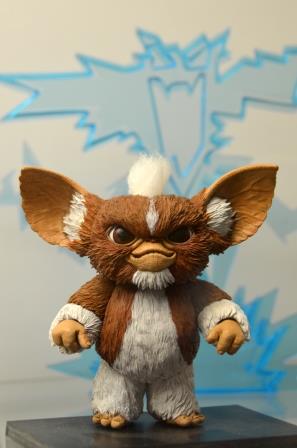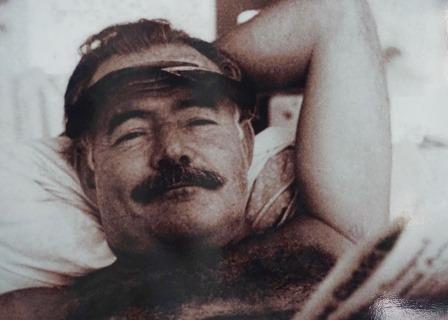6 Popular Words You Didn’t Know Were Coined By Famous Writers
Artists are often some of society’s biggest movers and shakers. Writers, poets, painters, and dancers (along with other types of artists) bring about big changes in culture through creations that help us to look at the world differently and express ourselves in never before seen ways. When it comes to language, writers have a huge impact on the course it can take through history. Many of the words you use today didn’t just spring up out of nowhere, there was someone who invented these terms or found new ways to use them. Curious to know which writers are responsible for which words and phrases in the English language? Read on to discover six words that were coined by some of the most well-known writers in the world!

Photo via PhotoPin
- Gremlin
Coined by: Roald Dahl
Long before the rather terrifying 1984 film Gremlins came out, the term gremlins was already a comical part of the English language. In 1943 Roald Dahl wrote a children’s story titled The Gremlins: A Royal Air Force Story. According to legend, gremlins were tiny creatures responsible for causing mechanical problems in aircrafts. Definitely nothing like the don’t-get-wet-or-feed-after-midnight version we know of today!
- Nerd
Coined by: Dr. Seuss
Dr. Seuss is single-handedly responsible for some of our most beloved children’s books, but he apparently also had a hand in creating a word that has become a concrete part of our language. In his 1950 book If I Ran A Zoo, the main character waxes poetic about his big, big plans. He says: “I’ll sail to Ka-Troo / And bring back an IT-KUTCH, a PREEP, and a PROO, A NERKLE, a NERD, and SEERSUCKER, too!” Dr. Seuss illustrated a nerd as a creature with unruly hair wearing a black t-shirt. For some bizarre reason, nerd stuck around and became part of our vocabulary, while none of the other equally odd terms did.

Photo via PhotoPin
- Meme
Coined by: Richard Dawkins
We all know what memes are. They’ve become such a huge part of contemporary pop culture that you probably can’t spend even one day surfing the web without coming across a few. However, when Richard Dawkins first coined the phrase in the 1970s, I’m not sure funny pictures with sarcastic slogans was exactly what he had in mind. A meme is an element or fundamental unit of culture but these days we know memes to be humorous videos, images, or pieces of text which can be copied and spread widely across the internet.
- Feminist
Coined by: Alexandre Dumas
That’s right ladies, the word feminist was coined by none other than a man. It’s debatable that Alexandre Dumas was a man ahead of his time and a feminist, but he did gift us with a word that is widely prevalent, especially today. In 1873 he wrote: “The feminists say, with perfectly good intentions, too: All the evil rises from the fact that we will not allow that woman is the equal of man.” Girl power!
- Eyesore
Coined by: William Shakespeare
Shakespeare is one writer in particular who was responsible for coining quite a few words and phrases that live and thrive in the English language even today. Eyesore was one such word, and yes, it means almost exactly the same thing as it did back in the Bard’s time. In his play The Taming of the Shrew, Shakespeare employed the word to indicate something which is offensive to the eye.

Photo via PhotoPin
- Cojones
Coined by: Ernest Hemingway
Cojones was a word that already existed in the Spanish language, so technically Hemingway borrowed it, but in doing so he brought a new term into the English language and transformed its meaning in the process. It’s no secret that Papa Hemingway was a big fan of bullfighting. He believed that bullfighters, because they constantly toed the line between life and death, lived life more fully than the rest of us mere mortals. In his 1932 book Death in the Afternoon Hemingway wrote: “It takes more cojones, to be a sportsman where death is a closer party to the game.” Viola! Cojones went from being a word which meant testicles to a term which represented courage and tenacity.
Learning Spanish? Check out our free Spanish placement test to see how your level measures up!
It may surprise you to know that there are many words you use in your day to day life that were coined, created, or transformed by some writer in the past. This is indeed one of the most fascinating parts of language: it is constantly changing and very unpredictable. We never know which words will become popular and which will die out. However, we can always look at the fascinating origins of the words which do stick around and risk a guess or two!
Do you know any words that were coined by writers? Share some of your favorites with us!
